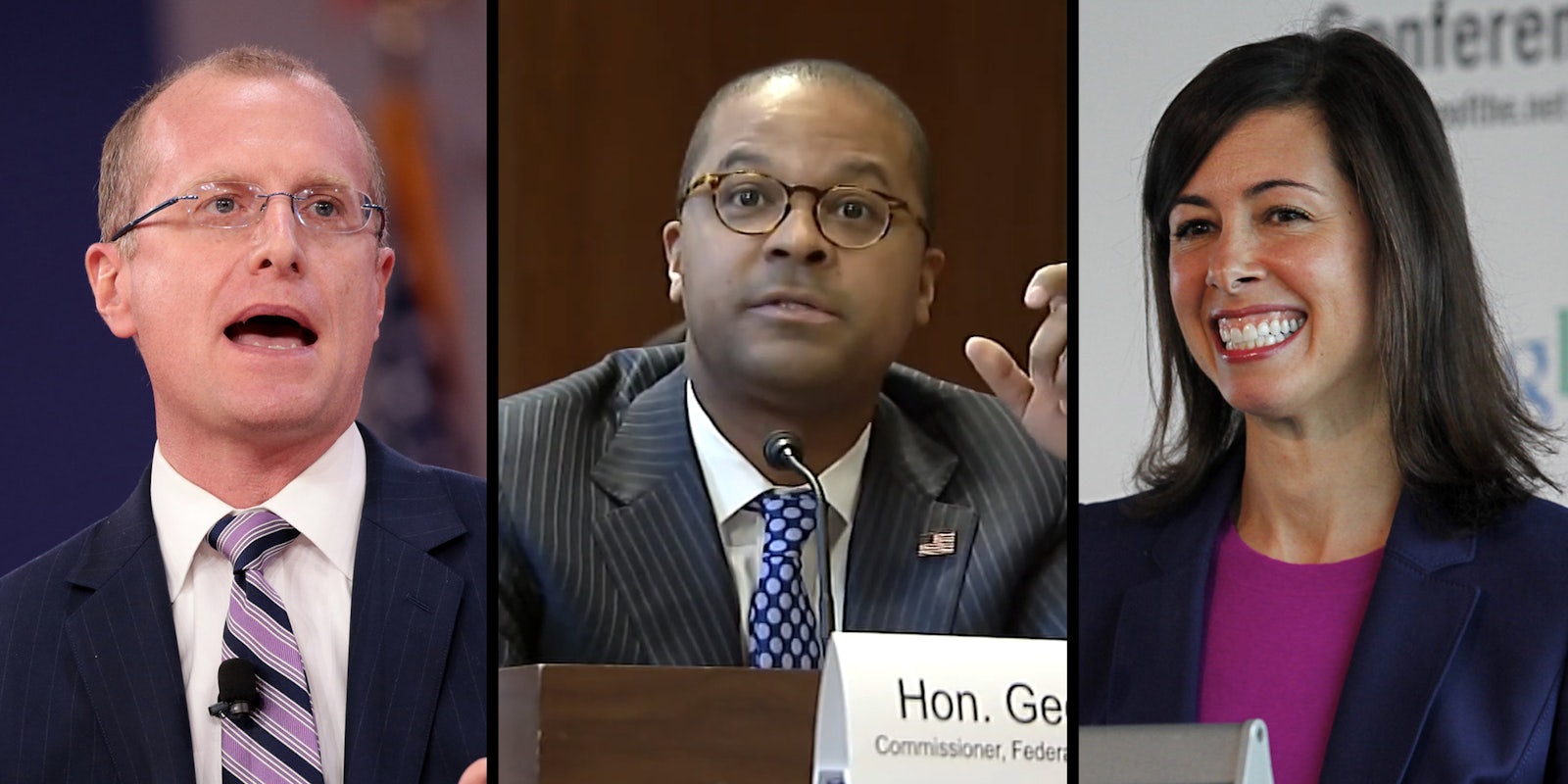President Donald Trump’s social media executive order took a step forward on Monday, but some Federal Communications Commission (FCC) commissioners have already resoundingly rejected its premise.
The National Telecommunications and Information Administration (NTIA), a part of the executive branch, filed a petition for rulemaking with the FCC on Monday, asking the agency to “clarify the provisions” of Section 230 of the Communications Decency Act.
Trump’s executive order, taking aim at Section 230, came after he was fact-checked by Twitter over tweets about mail-in ballots. It ordered the NTIA to issue a petition to the FCC by Monday.
The executive order is also facing a legal challenge that asserts it is unconstitutional.
Section 230 has become a political punching bag on both sides of the aisle in recent months. The section has been hailed as “one of the most valuable tools for protecting freedom of expression and innovation on the internet” and serves as a shield for websites being held liable over what is posted on them by third parties.
Shortly after the the petition was filed, three of the five FCC commissioners reacted to it, with the Democratic commissioners rejecting what it asks the FCC to do and one Republican commissioner welcoming it.
Geoffrey Starks, a Democrat, called the petition “ill-advised” and said the FCC “should dispose of this petition as quickly as possible.” Starks said the petition did “not make the case” that the FCC had authority to do what it is being asked to.
“Even if there were a role for the FCC, adopting these rules now would be a terrible idea. Congress laid out Section 230’s original scope, and Congress should decide whether to change it. In fact, members are already actively considering reform,” Starks said in a statement, adding: “There is no good reason for the FCC to insert itself into that process.”
Similarly, Jessica Rosenworcel, a Democrat, said the FCC “shouldn’t take this bait.”
“While social media can be frustrating, turning this agency into the President’s speech police is not the answer. If we honor the Constitution, we will reject this petition immediately,” Rosenworcel said.
Meanwhile, one of the FCC’s Republican commissioners, Brendan Carr, welcomed the petition.
Carr said the petition allowed for the FCC to “bring much needed clarity to the statutory text,” and that he was looking forward to “reviewing and acting expeditiously on the petition.”
Notably, two other Republican commissioners, Michael O’Rielly and Chairman Ajit Pai did not release public statements about the petition.
Last month, O’Rielly said that he had “deep reservations” as to whether the FCC had authority to put limitations on Section 230, but said he wanted to talk to “knowledgeable people” to see if Congress “intentionally” or “accidentally” gave the FCC authority.
Pai has been mum on the subject, saying that he didn’t want to “prejudge” any petition before he got it and sidestepping questions from Congress about it during an oversight hearing.
However, in a letter to Senate Republicans released last week, Pai said the FCC will “carefully review” the petition.
The FCC, as an independent agency, does not need to carry out directives issued by the administration.
If the FCC takes up the order, it will likely open it up to public comment—like it did with its net neutrality repeal—before voting on it.
READ MORE:
- Ajit Pai refuses to answer questions about Trump’s social media executive order
- Republican FCC commissioner has ‘deep reservations’ about Trump’s social media executive order
- Republicans rally around Trump’s social media executive order
- Read the heartbreaking complaints Americans sent the FCC after their internet was shut off during the pandemic


